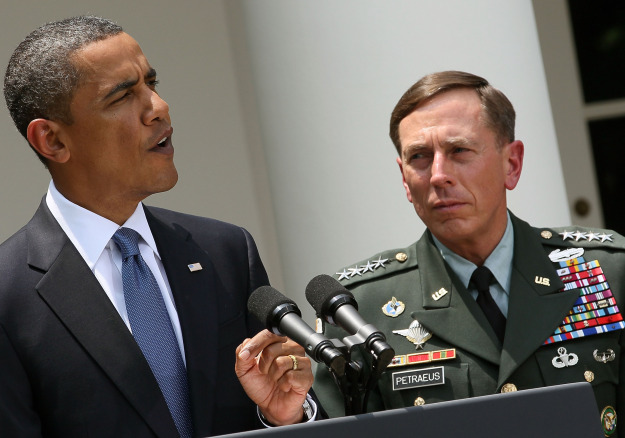
From James Dobbins, Foreign Policy: President Obama has now swapped one distinguished general for another. But he urgently needs to address the underlying issue dividing his administration: Is July 2011 a real deadline for U.S. troops to begin withdrawing, or just a clever domestic political ploy?
By replacing Gen. Stanley McChrystal with Gen. David Petraeus, U.S. President Barack Obama has treated the most recent symptom of his Afghan malaise — an insubordinate, or at least indiscreet, general. He has not, however, addressed the underlying malady: a conflicted policy and a divided administration. In deciding last November to send more troops to Afghanistan in 2010 and then begin to take them out in 2011, Obama fashioned a compromise between his advisors and sought to balance conflicting public pressures. His solution seemed to work politically — but it also built an unavoidable tension into U.S. Afghanistan policy.
It is hard to keep everyone within an administration on the same page for one approach if most of them think (and some of them hope) that they will soon be heading in another direction entirely. For example, whereas Defense Secretary Robert Gates and chairman of the Joint Chiefs of Staff, Adm. Mike Mullen, have walked back the president’s July 2011 deadline, Vice President Joe Biden was quoted in Jonathan Alter’s recent book The Promise as predicting that it will occur on schedule and be substantial (White House Chief of Staff Rahm Emanuel said the same on June 20). …
Rather, those calling for a new, non-COIN strategy are advocating that the United States cease countering the Taliban insurgency, or at least cease trying hard to do so. This is precisely the expectation that Obama’s deadline is feeding, making it difficult to keep U.S. officials on task and in line, and making it even harder to bring allies and Afghans on board.
The strategy that McChrystal designed for Afghanistan is based on best practices in dealing with insurgencies over the past half-decade and in particular on Petraeus’s own successful application of those principles in Iraq in 2007. In naming Petraeus to succeed McChrystal, Obama is effectively recommitting himself to such a COIN strategy, at least for another year. But successful counterinsurgency requires the intense integration of civil and military services, U.S. and allied troops, Afghan and international efforts. That is very hard to do, particularly with the sort of synchronicity that the president’s timetable demands. Uncertainty about the president’s longer-term intentions only increases this difficulty. If everyone thinks the United States is heading for the exits next year, why should they pay large costs and take large risks now?
James Dobbins was the U.S. special envoy for Afghanistan in 2001 and 2002. He is director of the International Security and Defense Policy Center at the Rand Corporation. (photo: Mark Wilson/Getty)
Image: getty%206%2025%2010%20Barack%20Obama%20David%20Petraeus.jpg
